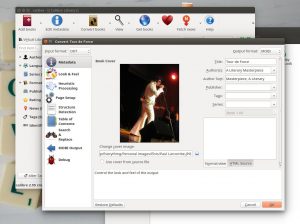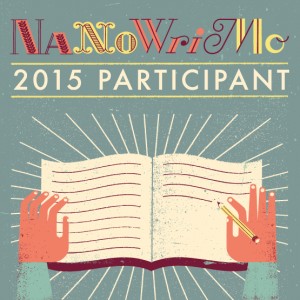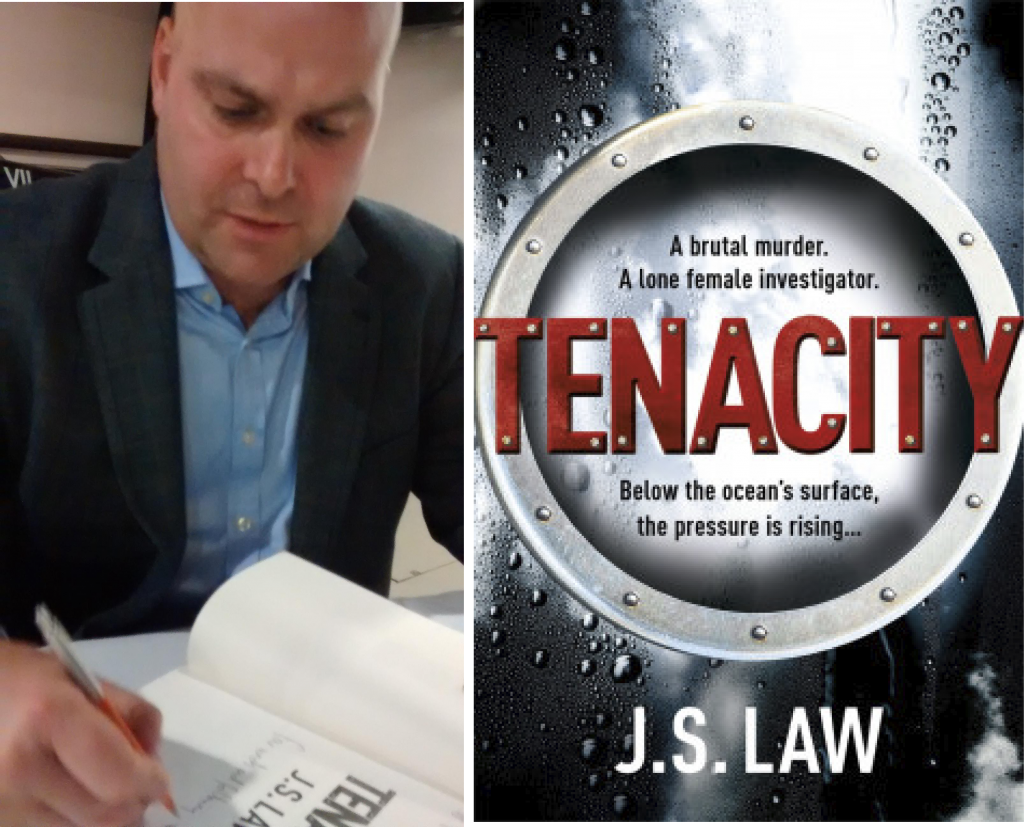It’s easy to slag books off. I do it all the time – as a reviewer I see lots of not-very-good books: novels which are cynical imitations of another title which did quite well a few years ago, novels written to a formula, novels cranked out when the writer had a deadline but was struggling for inspiration. And everyone’s favourite punching bag, Fifty Shades of Grey. It’s fun to slag off books and as a wannabe author it’s encouraging – if this load of old twaddle can get published, so can I. So yes, I do it, I’m only human.
But it’s also deeply wrong and unfair, because every non-celeb person who has ever had a book published deserves huge respect for beating the odds. They have been through at least a dozen agonising and increasingly Hunger Games-esque stages to get there…
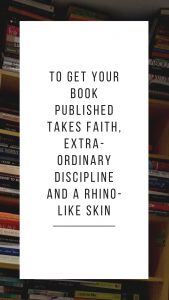 1: They had a Very Good Idea. You know, just like the one that’s floating round your head at the moment that would be an absolute best seller if only you could find the time to write it all down.
1: They had a Very Good Idea. You know, just like the one that’s floating round your head at the moment that would be an absolute best seller if only you could find the time to write it all down.
2: They had a Second Very Good Idea which gave the initial Very Good Idea wings. Boy goes to wizard school has potential, but Orphaned boy goes to wizard school where he discovers a dark link between himself and the powerful wizard who murdered his parents is the start of a seven-book series.
3: They found the time to write it down. Hours. Days. Months. In the middle of the night, getting out of bed at 5am, punching it out with their thumbs on their iPhone on a commute. Or even giving up their jobs. Despite all the crap going on in their lives, they found the time.
4: They didn’t give up when they got 30,000 words in and realised that the Second Very Good Idea actually doesn’t work at all unless they go back and unpick everything that happened after Chapter Two. Instead, they went back and unpicked. Or they replaced the duff Second Idea with a shiny new Third Very Good Idea which made it even better.
5: They wrote 60,000 to 150,000 words about Very Good Ideas One and Two (or Three.) It might not be in a genre you like, it might be too light and fluffy or too flabby and pretentious but they wrote the words down. A story now exists where there was none before.
6: Then they edited, going through the whole thing until they were sick of the sight of it, rejigging it, taking bits out, regretting it, putting them back in. They cut things they loved, sliced out whole characters and wrote entirely new scenes instead, all the while not truly knowing whether they were making the thing better or worse.
7: They then sent it to agents. Dozens of ‘em. They received rejection email after rejection email until they wondered whether the Very Good Idea was actually Utter Tripe Idea in disguise. Maybe they took too long writing it and nobody wants dystopian YA stories any more, or a major plot point has been wiped out by the invention of Google Maps. Or maybe they just wasted an immense amount of their time and passion on something nobody wants to read. This could happen, and does – all the time. But if it doesn’t…
More bashing into shape ensues
8: An agent actually picks it out of their slush pile of hundreds, is moved by the words, blown away by VGIs One and Two, and signs them up. More editing ensues. Author and agent eventually agree that book is in good shape. Hooray!
9: Said agent believes in the book enough to haul it all around town to different publishers, or even take it to a book fair and say: “Buy my client’s book, it’s great and it will make money for you.”
10: In order to get a book deal, the author then has to cage fight JK Rowling using only a copy of The Writers’ & Artists’ Yearbook as a weapon. Oh wait, no, that’s just a weird dream I had.
10: A publisher sees the book, likes it and thinks that this is a Very Good Idea, which will possibly make money for them.
11: The publisher then introduces an editor into the mix who undertakes more Bashing Into Shape along with the author who is probably feeling pretty bashed themself by now. Once they’re happy, they haul it around town to the booksellers and supermarkets, convincing them that the author has had a Very Good Idea and that they, too could make money from it.
12: It has been years since the author had the Very Good Idea but it’s stood the test of time, it’s on the shelves. Now the author, the publisher and booksellers all join forces to convince us – the reading public – that the Very Good Idea is worth spending the price of a cup of coffee on.
What a way to make a living!
Seriously, it’s ridiculous, but that’s the way it works in traditional publishing. So to get your book onto shelves and into people’s hands takes an astonishing amount of faith in yourself and your idea, extraordinary discipline and commitment plus a rhino-like skin to deal with all those rejections and edits along the way. So anyone who has ever, ever had anything published is an utter hero. I salute you. And one day, glutton for punishment that I am, I hope to join you.


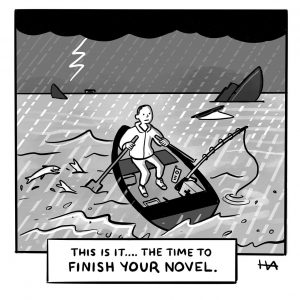
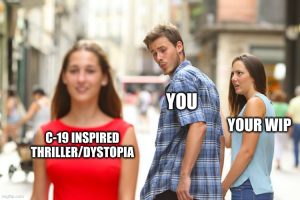


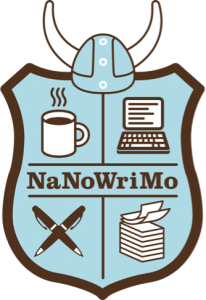
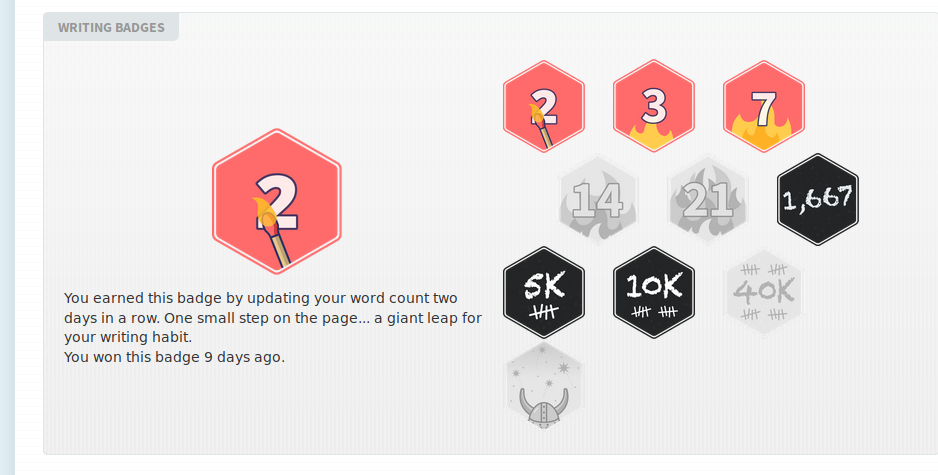
 1: They had a Very Good Idea. You know, just like the one that’s floating round your head at the moment that would be an absolute best seller if only you could find the time to write it all down.
1: They had a Very Good Idea. You know, just like the one that’s floating round your head at the moment that would be an absolute best seller if only you could find the time to write it all down.
